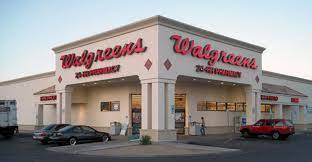- Slot Machines: Spinning Through History, Innovation, and Entertainment
- The Ever-Spinning World of Slots: A Unique Look into Their Evolution and Appeal
- The Fascinating World of Slot Machines: Luck, Technology, and Entertainment
- EmakQQ: Platform Domino QQ Online Terpercaya di Indonesia
- JepangQQ: Platform Permainan Kartu Online dengan Nuansa Modern
Understanding Net Lease Properties: A Comprehensive Guide

In the realm of real estate investing, Retail properties for sale have garnered significant attention for their potential to provide stable returns and minimal management responsibilities for landlords. This article aims to delve into the intricacies of net lease properties, exploring what they are, how they work, their advantages and disadvantages, and essential considerations for investors.
What are Net Lease Properties? Net lease properties, also known as triple net (NNN) properties, are commercial real estate assets where tenants bear the responsibility for paying not only the base rent but also the property taxes, insurance premiums, and maintenance costs associated with the property. In essence, the tenant assumes the majority of the operating expenses typically shouldered by the landlord in a standard lease agreement.
Types of Net Leases: There are several types of net leases, each delineating the extent of financial responsibility assumed by the tenant:
- Single Net Lease (N Lease): In a single net lease, the tenant is responsible for paying the property taxes in addition to the base rent, while the landlord retains responsibility for insurance and maintenance costs.
- Double Net Lease (NN Lease): In a double net lease, the tenant assumes responsibility for paying property taxes and insurance premiums, along with the base rent. The landlord remains responsible for property maintenance.
- Triple Net Lease (NNN Lease): A triple net lease is the most common type in net lease properties. Here, the tenant bears the burden of paying property taxes, insurance premiums, and maintenance costs, in addition to the base rent.
Advantages of Net Lease Properties: Investing in net lease properties offers several advantages for landlords:
- Predictable Income: Since tenants are responsible for covering operating expenses, landlords receive a predictable income stream without the volatility associated with fluctuating expenses.
- Passive Investment: Net lease properties provide an opportunity for passive real estate investment, as landlords have minimal involvement in property management.
- Long-Term Stability: Retail properties for sale agreements often span several years, providing landlords with stable, long-term cash flows and reduced tenant turnover.
- Hedge Against Inflation: With tenants responsible for covering expenses, net lease properties can serve as a hedge against inflation, as rental income adjusts to reflect increases in operating costs.
Considerations for Investors: While net lease properties offer compelling advantages, investors should carefully consider the following factors before diving into this asset class:
